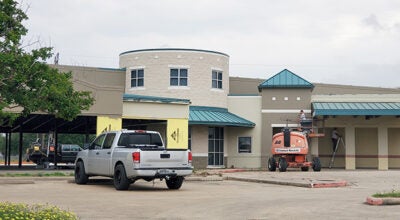Texas stokes immigration debate with ‘sanctuary cities’ ban
Published 8:28 am Tuesday, May 9, 2017
By the Associated Press
According to the Associated Press, Texas Gov. Greg Abbott signed in sweeping legislation Sunday meant to curb so-called sanctuary cities.
The term is broad and varies depending on the city, but in general it means law enforcement does not prioritize rounding up and arresting illegal immigrants simply because these people are in the country illegally.
Civil liberties groups have vowed to challenge the law, though it will not take affect until September. However, it is not clear what, if any, change it will bring to Port Arthur.
Whereas some cities have passed specific policies that define what it means to be a sanctuary city, Texas doesn’t currently have any cities which have formally declared themselves sanctuaries for immigrants.
This includes Port Arthur.
However, earlier in the year, after President Donald Trump made it clear that he would use federal resources to target illegal immigrants, Port Arthur Mayor Derrick Freeman said local police would not ask about immigration status unless it was related to some larger crime. Freeman said he wanted immigrants to know they could report crimes without fear of arrest.
In February, Freeman wrote on Facebook, “Please know that public safety is what our police force does. Not immigration.”
Freeman said he was concerned that crime was not being reported because the victims were concerned they would be deported. In March, Freeman and Police Chief Patrick Melvin held a community meeting explaining how the city would police its immigrant population and Melvin seemed to echo Freeman’s comments.
“We don’t want you to be afraid. We’re here to protect and serve you. If you’re a victim of a crime we will treat you as a victim. Whoever breaks the law we’ll enforce that also,” Melvin said in March.
He has also asked for residents to report officers who are out of line.
However, back in March Melvin also added that officers cannot ask immigration status if the subject has not been arrested. Nevertheless, the chief indicated on Monday no immediate changes will be coming from his department following Sunday’s signing.
“Chief Melvin mentioned this new law will not affect the way we treat the citizens of Port Arthur,” said city spokesperson Risa Carpenter in an e-mail. “PAPD will continue to follow its mission statement; which basically states that PAPD will protect and serve the citizens of Port Arthur and will treat each citizen with dignity and respect and privacy when appropriate.”
Still, the law is making waves outside of Texas with critics alleging the law is the toughest immigrant-related law since the 2010 Arizona law.
Abbott signed the measure on Facebook Live Sunday evening without advance notice, which critics said was to avoid protesters. Abbott spokesman John Wittman said they chose to sign the bill on social media because that’s “where most people are getting their news nowadays.”
The law allows police to inquire about the immigration status of anyone they detain, a situation that can range from arrest for a crime to being stopped for a traffic violation.
It also requires police chiefs and sheriffs — under the threat of jail and removal from office — to comply with federal requests to hold criminal suspects for possible deportation.
Republicans have a strong majority in the Legislature and shoved aside Democratic objections, even as President Donald Trump’s efforts to withhold federal funding for sanctuary cities have hit roadblocks in federal courts.
“Let’s face it, the reason why so many people come to America is because we are a nation of laws and Texas is doing its part to keep it that way,” Abbott said.
Democratic state Rep. Cesar Blanco said it looked like Abbott “wanted to get ahead” of any protests by staging the signing on Facebook Live.
Texas is the nation’s second most populous state, and opponents say Hispanics will now be subjected to racial profiling and predicted the law will have a chilling effect on immigrant families.
The bill won’t take effect until Sept. 1. Terri Burke, executive director of the ACLU of Texas, said “we will fight this assault in the courts” and the ballot box. Abbott said key provisions of the bill had already been tested at the U.S. Supreme Court, which struck down several components of Arizona’s law but allowed the provision permitting police to ask about immigration status.
The term “sanctuary cities” has no legal definition, but Republicans want local police to help federal immigration agents crack down on criminal suspects in the U.S. illegally. Some Democrats said the timing of the signing particularly stung after three recent federal court rulings that found intentional discrimination in Republican-passed voting laws.
“They did not connect the history of our culture or how closely that it is tied to Mexico,” Democratic state. Rep. Eddie Rodriguez said. “It’s just extremely personal. There is a lot of disconnect. They don’t really see this as affecting people.”
The Texas and Arizona bills are not identical. Whereas the Arizona law required police to try to determine the immigration status of people during routine stops, the Texas bill doesn’t instruct officers to ask. But it does allow Texas police to inquire whether a person is in the country legally, even if they’re not under arrest.
But Sally Hernandez, the sheriff of Travis County, which includes liberal Austin, has refused to honor federal requests to detain immigrants if the suspects weren’t arrested for immigration offenses or serious crimes such as murder. Hernandez softened her policy after Abbott cut funding to the county, saying decisions would be made on a case-by-case basis. She said before Abbott signed it that she would conform to the ban if it became law.
Additional reporting by Jesse Wright





